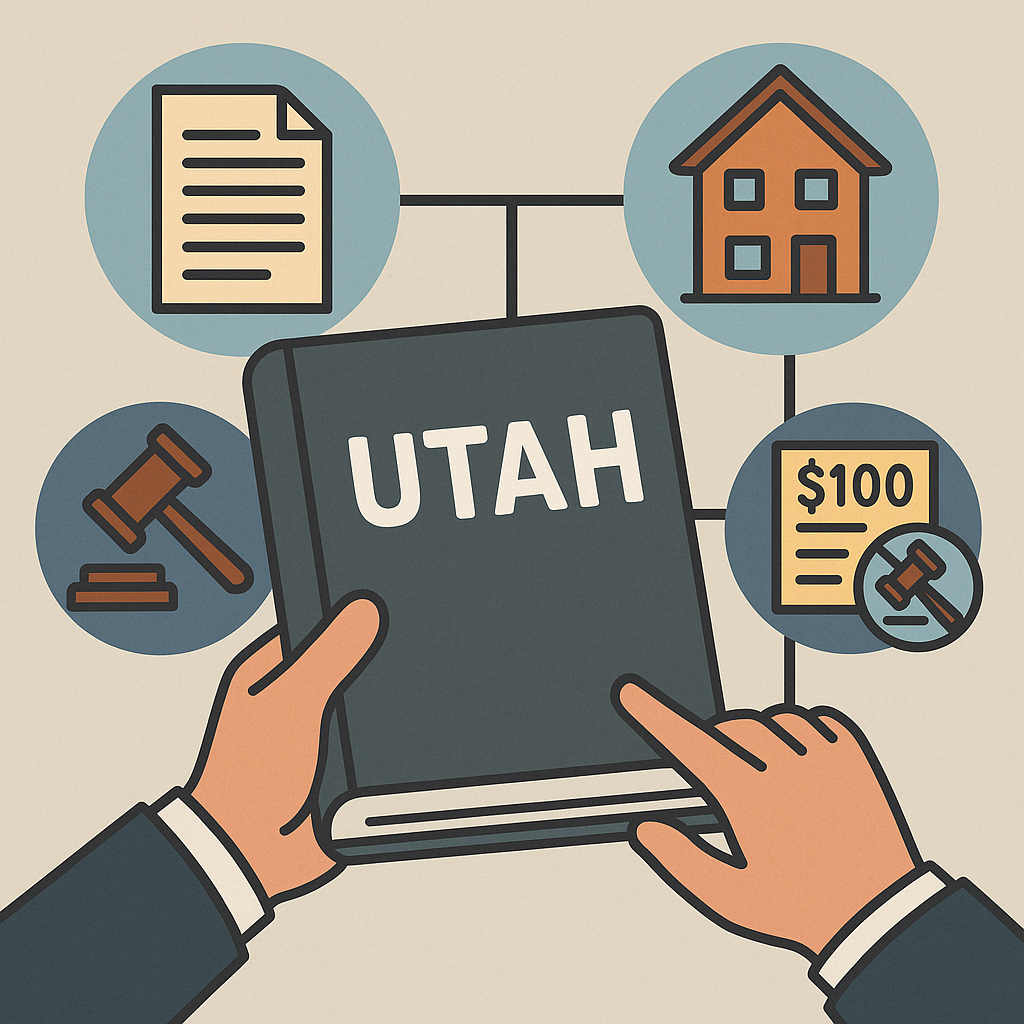What Are My Rights With HOAs in Utah? Fines, Rules, and Disputes
Plain-English guide to CC&Rs, valid fines, notice-and-cure, appeals, mediation, records, and court options
Utah Law Explained gives homeowners in HOA communities a clean path to action. Utah law allows HOAs to enforce rules and issue fines only if they follow state procedures and your community’s governing documents (CC&Rs, bylaws, and rules). This guide shows what those documents mean, how valid fines must be handled, and what to do when an HOA steps outside its authority so you can avoid costly mistakes.
Living under an HOA means balancing community standards with property rights. Below you’ll learn what your documents actually allow, when a fine is valid or not, the required notice-and-cure steps, how to appeal or mediate, how to request records, and when to use court. You’ll also find a short media hub with Utah examples and updates like the new HOA Ombudsman Office.
Overview
Utah’s Community Association Act works alongside your CC&Rs, bylaws, and board-adopted rules. If a community policy conflicts with state law, the statute controls.
- What your governing documents actually allow
- When a fine is valid (and when it is not)
- The notice-and-cure process every HOA must follow
- Appeal, mediation, and Ombudsman options
- How to request records and hold the board accountable
Tip: ask for digital copies of CC&Rs, bylaws, and rules from your manager or board. They must provide them upon written request.
Your Governing Documents
CC&Rs
Bylaws
Rules & Regulations
Reference: Utah Code Title 57 (Community Association Act). Keep board emails and minutes showing how rules were adopted.
When HOA Fines Are Valid
To issue a valid fine, an HOA generally must:
If these steps aren’t followed, the fine may be invalid—and you can challenge it. Keep copies of notices, emails, and letters.
Notice and Cure Process
Written Notice
Must cite the rule, the corrective action, a clear deadline, and the potential fine if not corrected.
Reasonable Cure
If you fix the issue within the cure period, the fine should be waived. Ask for time if parts or scheduling are needed.
Decision & Appeal
If not cured, the board may fine—but must document the decision and provide an appeal path.
Appeal and Mediation Options
- Internal appeal: request a hearing or written review within your documents’ deadline.
- Mediation: Utah encourages mediation before litigation; local dispute-resolution centers are often fast and affordable.
- HOA Ombudsman: Utah’s new Office of the Homeowners’ Association Ombudsman offers education and informal help resolving disputes.
A short, well-organized mediation brief often resolves fines or prompts policy fixes without court.
Court Options for Persistent Disputes
Use court if mediation fails or the board ignores Utah law.
Accessing HOA Records
Homeowners have the right to inspect core HOA records. Submit requests in writing and keep a copy.
- Financial statements
- Meeting minutes
- Rules and policy changes
- Board communications about fines or disputes
Cite: Utah Code §57-8a-227. If access is refused without cause, file a complaint with the HOA Ombudsman.
Video & Social Learning Hub
Key Takeaways
HOAs can fine only if they follow Utah law and your governing documents.
Notice-and-cure comes first. Fixing on time should waive the fine.
You can appeal, mediate, and request records; use court only when needed.
This page is legal information, not legal advice. When in doubt, get counsel before you file.
Need Utah-Specific Help?
Use our checklists and templates for notices, appeals, mediation requests, and records letters. If your dispute is complex or urgent, talk with a Utah attorney.
Talk to a Utah AttorneyWe can help you validate fines, map procedures, and plan appeals or mediation strategy.
